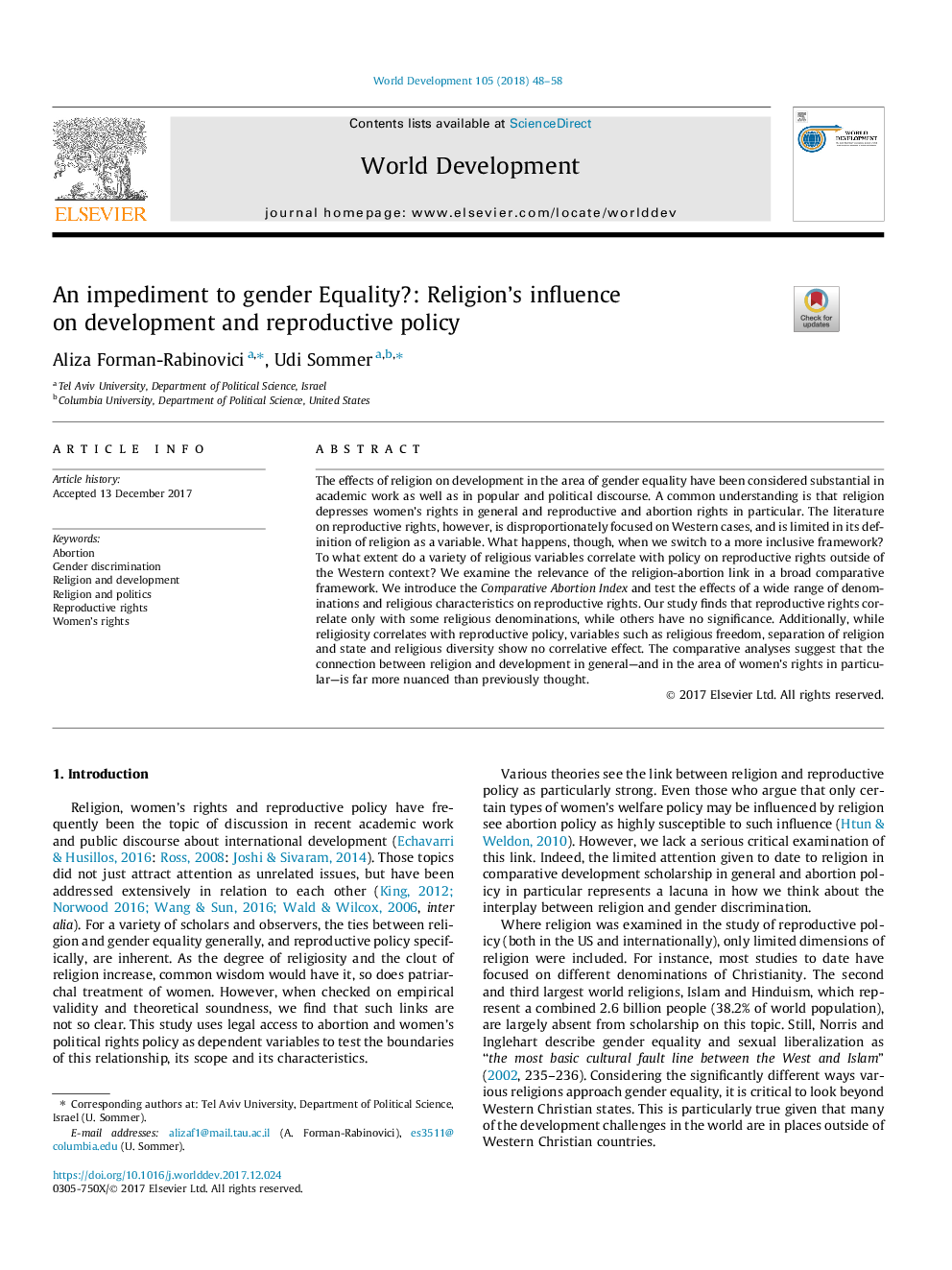ترجمه فارسی عنوان مقاله
مانع از برابری جنسیتی؟: تاثیر دین بر روی توسعه و سیاست تولید مثل
عنوان انگلیسی
An impediment to gender Equality?: Religionâs influence on development and reproductive policy
| کد مقاله | سال انتشار | تعداد صفحات مقاله انگلیسی |
|---|---|---|
| 130151 | 2018 | 11 صفحه PDF |
منبع

Publisher : Elsevier - Science Direct (الزویر - ساینس دایرکت)
Journal : World Development, Volume 105, May 2018, Pages 48-58
ترجمه کلمات کلیدی
سقط جنین، تبعیض جنسیتی، دین و توسعه، دین و سیاست، حقوق تولید مثل، حقوق زنان،
کلمات کلیدی انگلیسی
Abortion; Gender discrimination; Religion and development; Religion and politics; Reproductive rights; Womenâs rights;

